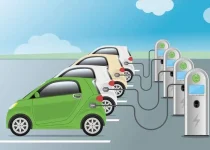How do electric vehicles impact the demand for oil and other fossil fuels

Electric vehicles (EVs) have a significant impact on the demand for oil and other fossil fuels, as they displace the need for gasoline or diesel in the transportation sector. As the adoption of EVs grows, this impact becomes more pronounced. Here are some ways in which EVs affect the demand for fossil fuels:
- Reduced gasoline and diesel consumption: With more people driving electric vehicles, the consumption of gasoline and diesel for transportation decreases. This directly reduces the demand for crude oil used to produce these fuels, leading to a decline in oil consumption.
- Lower dependence on oil-producing countries: As the need for oil decreases due to the increasing adoption of EVs, countries that rely heavily on oil imports can potentially reduce their economic and geopolitical dependencies on oil-producing nations, contributing to greater energy independence and security.
- Shift in energy production: As demand for electricity to power EVs increases, there may be a shift in energy production from fossil fuels to cleaner and more sustainable sources, such as solar, wind, and hydroelectric power. This shift can contribute to a decline in the demand for coal, natural gas, and other fossil fuels used for electricity generation.
- Decreased investment in oil and gas exploration: As the long-term outlook for oil and gas demand becomes less certain due to the growth of EVs, investments in new oil and gas exploration and production projects may decline. This can lead to a reduced focus on fossil fuel resources and increased investment in renewable energy and other sustainable technologies.
- Impact on petrochemical industry: The decrease in demand for gasoline and diesel can also have an indirect impact on the petrochemical industry, which relies on by-products from oil refining to produce various chemicals and materials. However, it is important to note that petrochemicals have a wide range of applications beyond transportation fuels, so the impact on this industry may be more complex.
- Reduced demand for maintenance products: Electric vehicles require less maintenance and fewer fluid replacements compared to internal combustion engine vehicles. This can lead to a reduced demand for engine oil, transmission fluid, and other maintenance products derived from fossil fuels.
In summary, electric vehicles have the potential to significantly impact the demand for oil and other fossil fuels by reducing the need for gasoline and diesel in the transportation sector, promoting a shift towards cleaner energy sources, and indirectly affecting industries related to fossil fuel production and consumption. As the adoption of EVs continues to grow, these impacts are likely to become more pronounced, contributing to a global transition towards more sustainable and environmentally friendly energy sources.


